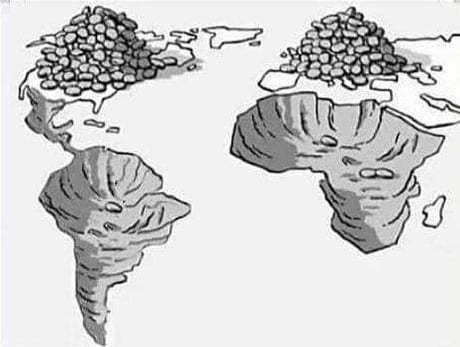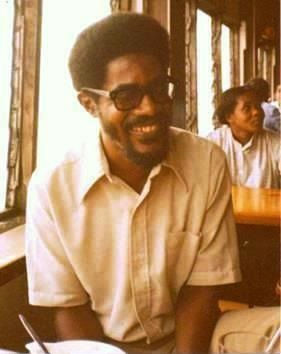The Roots of Global Inequality
- Nathan Black

- Apr 7
- 3 min read
Updated: May 2

Introduction to the Economic Underdevelopment topic
My research generally focuses on non-Western underdeveloped states. However, to understand the great economic divide between the Global North and Global South, one must examine the complex economic relationship that exists between the two distant worlds. Works like Walter Rodney's How Europe underdeveloped Africa highlight the extreme unequal exchange that shaped places entire continents in the Global South and continue to define global trade. Exploitation has resumed under other means well into the 21st century, as examined in John Smith's brilliant work, Imperialism in the Twenty-first Century. When discussing the Global South, I consciously use the term "underdeveloped" rather than "developing" because I feel that the latter obscures the parasitic relationship between the North and South. A combination of liberal optimism and Western social chauvinism have long promoted the idea that "developing" states merely need to "catch up" to the "developed" states by adopting Western values and policies. They completely ignore the global system of exploitation that holds back the vast majority of humanity.
Prior to colonialization, there existed many flourishing societies in the Global South. Colonialism ushered in an age of looting that left entire continents destitute and civilizations destroyed. Western countries industrialized and grew wealthy off of their plunder of the Third World. One of the biggest transfers of wealth occurred under British India in the 1800s to 1900s. There are a myriad of excellent sources that are available on the subject, but for beginners, I would recommend Inglorious Empire by Shashi Tharoor and Late Victorian Holocausts by Mike Davis.
Even in the post-colonial era, the US and its allies continue to violate the sovereignty of Third World nations. Perhaps the most blatant forms of political engineering can be seen in the Latin American interventions. Their proximity to the US makes American government extremely sensitive to any attempts of its southern neighbors to assert any form of self-determination or non-alignment. The most notorious of these incidents cumulated in the Cuban Missile Crisis, which brought the world to the brink of nuclear war. Other incidents involved putting Latin American countries under extreme state of siege by fabricating a "communist" insurgency. These cases are numerous, so I would suggest William Blum’s Killing Hope as a good starting point. Vincent Bevins's The Jakarta Method does a great job of describing the political process used of installing brutal military dictatorships in Brazil and Argentina, a practice that was originally based on the strategy used in Indonesia during the 1960s.
Moves to destabilize and replace Third World governments were often justified by claiming that the target was under threat by "international communism". The implication was that the US's main geo-political rival, the USSR, was behind every leftwing or left-leaning political movement in the Third World. The reality is, the Soviet Union had neither the resources nor the political will to match US interventions. Its influence was limited to Eastern Europe and a handful of Third World states including Cuba, Vietnam, and Mongolia. The fabricated threats against the USSR merely served as a basis to intervene to protect US economic interests.
The vast majority of leftist movements crushed by the US were popular and spontaneous. Socialism was very attractive to the denizens of the Third World since it empathized ending economic exploitation and the democratization of resources. Ties between these groups and the SU were minor to non-existent. Many could not even be said to be socialist, instead drawing on socialist elements. The collapse of the Soviet Union was ultimately not caused by the US's grand anti-communist crusade, but under its own contradictions, as outlined in Socialism Betrayed: Behind the Collapse of the Soviet Union by Roger Keeran and Thomas Kenny. Once the USSR dissolved, the US was forced to find new adversaries in order to justify future interventions.



Comments